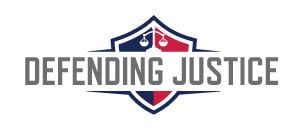The ABA's role in protecting judicial independence
<
div id=”feature-column1” class=”clearfix” style=”float:left; padding-right:8px;”>

Photo of Hilarie Bass courtesy of the Office of the President
The independence of the judiciary is an important pillar in any democracy. But throughout history it has also proven to be a fragile one, and there continue to be many examples of that fragility in the United States and throughout the globe.
In the U.S., the courts’ unique role has come under attack on many occasions, despite the constitutional protections designed to ensure that courts are accountable to the law and free from interference by the executive and legislative branches.
A judiciary free from interference has not always been the case. In the 1850s, abolitionists threatened to ignore court orders upholding slavery, just as in the 1950s segregationists tried the same tactic against the Brown v. Board of Education decision. In 1937, President Franklin D. Roosevelt, frustrated by the U.S. Supreme Court’s rejection of his New Deal legislation, tried to “pack” the court in his favor by proposing to increase the court to 15 members. More recently, in Iowa, three state supreme court judges were voted out in highly politicized retention elections in 2010 after they voted to allow same-sex marriage. Today, many of our politicians have used their unhappiness over specific judicial rulings by personally attacking the jurists responsible for them.
Trust in our court system has also been undermined by judicial elections plagued with partisan and often-misleading information about the candidates because of the increase in special-interest financial contributions in the races.
And lately, statements from political leaders, and even government officials, have mocked individual judges and challenged the autonomy of the court system.
These attacks erode confidence in the system in general and in the judiciary specifically. The attacks become even more destructive because of a lack of understanding by the public about our system of government. A 2016 Annenberg Public Policy Center poll found that only 26 percent of Americans can even name the three branches of government. How safe can judicial independence be, and how much public confidence can exist in the judiciary if so much of the citizenry does not even know it exists or what its role is?
Even in the best of times, judicial independence requires constant vigilance, particularly by lawyers. They have an enormous stake in the ability of the courts to render decisions based on the law, without interference by other branches of government.
Maintaining an independent judicial system is neither easy nor simple. As former Supreme Court Justice Sandra Day O’Connor wrote in 2008: “Judicial independence does not just happen all by itself. It is tremendously hard to create, and easier than most people imagine to destroy.”
The American Bar Association has long been a leading advocate for independent courts. When the justice system has been attacked by political leaders, the ABA has spoken up. We have advocated for adequate funding for the judicial system, increased public understanding of the role of the judicial branch and use of a fair and impartial judicial selection process.
When Roosevelt attempted to pack the courts, the ABA sent some of its best lawyers to Washington to help those fighting FDR’s plan interpret questions of constitutionality.
When the Iowa judges were voted out for making a valid ruling, our ABA president at the time wrote: “On Election Day in Iowa, results came in that would have made our founding fathers cringe. … The results turned upside down the role of the courts the founders intended. As the third branch of government in the United States, courts must protect the rule of law rather than issue decisions that blow with the latest political winds.”
The ABA has also alerted the American public to the increasing threats to fair judicial elections. In a 2000 report, the ABA Commission on State Judicial Selection Standards warned of the “alarming increase in efforts by special interests to influence the outcome of judicial elections through both financial contributions and attack campaigning.”
The ABA believes the best way to ensure a fair and impartial judiciary is to choose judges at the state level through a system of merit selection, where a nonpartisan commission composes a list of qualified potential judicial candidates from which the governor chooses a nominee. Merit selection, endorsed by the ABA in 1937, helps remove the partisan politics inherent in a judicial election and the excesses of campaign rhetoric and cash.
When we talk about defending and protecting our judiciary, none of our work is more important than the peer reviews we continue to perform on judicial nominees being considered for lifetime appointments by the Senate Judiciary Committee.
The ABA Standing Committee on the Federal Judiciary provides comprehensive evaluations to decision-makers regarding federal judicial nominees’ professional competence, integrity and temperament in the effort to seat the most qualified judges.
Whether involved in the pre- or post-nomination vetting process, the hardworking members of this ABA committee have been unwavering in their focus on providing thorough, nonpartisan peer evaluations analyzing the competence, integrity and temperament of each judicial nominee. The ABA’s commitment to a high-quality judiciary is unwavering.
The ABA’s role also extends to educating the public on the critical role of a fair judiciary in their lives and businesses. We have powerful allies in this work. The National Association of Women Judges, a nationwide nonpartisan organization of judges, operates the Informed Voters, Fair Judges Project. Launched in 2012 as a civic education initiative, it works to make people aware of the role of the judiciary and the danger of political attacks.
The Informed Voters Project, co-chaired by Pompano Beach, Florida, lawyer Linda Leali and California Supreme Court Chief Justice Tani Cantil-Sakauye, uses a broad array of educational resources to increase public awareness about the judicial system to inform voters that politics and special-interest attacks have no place in the courts, and to give voters the tools they need to ensure judges are appointed and elected based on their character, integrity and ability.
During ABA Law Day, the theme is “Separation of Powers: Framework for Freedom.” Through public programs, contests and other events across the country, we will promote the importance of an independent and co-equal judicial branch as part of a well-functioning government.
When judges are attacked, the ABA helps lawyers and bar leaders defend them. This spring, the ABA is updating its guide titled, “Rapid Response to Unfair and Unjust Criticism of Judges.” It urges state and local bar leaders to prepare “a rapid response team of knowledgeable and accessible individuals” who can determine if a response to a criticism is needed and, if so, the extent of the response.
Public acceptance of judicial independence depends on the judiciary’s ability to meet and maintain high ethical standards. The ABA has been a leader in setting ethical standards for judges. It first established a Model Code of Judicial Conduct—then known as the Canons of Judicial Ethics—in 1924. Amended multiple times throughout the years, the Model Code establishes standards for the ethical conduct of judges, provides guidance to judges and candidates for judicial office and provides structure for regulating conduct through disciplinary agencies. Each state can use the Model Code to decide how their judiciary is regulated.
Around the world, it is not surprising that those trying to undermine a democratic state often start by attacking and undercutting the independence of the judiciary.
In December, Poland passed laws that threatened the independence of its and other Supreme Courts by enhancing the power of the executive branch to replace large numbers of its judges. The ABA spoke out condemning the action and sent observers to the country to assess the situation. The added attention brought by the ABA may have had an effect, as the European Union is currently weighing sanctions against Poland over its changes to the rule of law.
In emerging democracies and transitioning states throughout the world, the Judicial Reform Index is an innovative tool developed by the ABA Rule of Law Initiative to assess states’ judicial reform and judicial independence. It offers international organizations, development agencies, technical legal assistance providers and local reformers a reliable means to target judicial reform programs and monitor progress toward establishing more accountable, effective and independent judiciaries.
Alexander Hamilton wrote in the Federalist Papers that “the complete independence of the courts of justice is peculiarly essential in a limited Constitution.”
As Hamilton stressed, judicial independence is deeply interwoven with the ideals of democracy. At the same time, it can be undermined—swiftly and unexpectedly. And what gets shattered cannot be quickly restored.
Protecting it, as Justice O’Connor wrote, is not easy. It requires work and diligence and attention. Defending the principle is the responsibility of every lawyer. A strong, impartial, independent judiciary is too important to squander.
Hilarie Bass is Co-President of Greenberg Traurig and president of the ABA. Follow President Bass on Twitter @ABAPresident.
Updated June 4 to correctly state that Leali is based in Pompano Beach, Florida.




